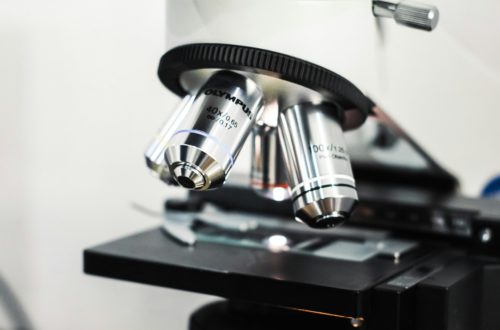
Writing Your Personal Statement for Residency Applications
Since it’s CaRMS season once again (when did the cycle change, hmm?), I thought I’d do what I had promised in a previous post and give more detailed tips on separate parts of the application process.
The inspiration for this post came from a new friend I had made during my rotation in Medical Oncology. She is an IMG hoping to get into pathology residency at McGill and, with the little that I know about her, seems to have enough achievements to list in her CV. During one conversation, she asked me about how I wrote my personal statement.
I had to think about the answer to this question because when you ask search engines, pages upon pages on how to craft a personal statement will result. Some of them will have conflicting advice. What is a confused applicant, already burdened with other application requirements, work and/or school, and personal life, supposed to do?
This article is meant to answer some of the most frequently asked, yet difficult-to-answer, questions about personal statements for medical residency applications.
1. Should I be creative, or should I keep it straightforward?
This is one question I’ve had myself when I was an applicant, an agonizing question echoed by many of my peers. The Internet doesn’t give a clear answer for this one. For example, some resources may suggest being creative to stand out from the rest, and others will caution against being flamboyant in case it appears unprofessional and unbecoming of a physician. Sadly, flamboyance may be a matter of opinion; I have heard more conservative specialties ask their prospective residents to dance during their interview. If a program will tend towards these seemingly frivolous theatrics, why reject letters that are similarly presented?
I suppose there are conflicting answers to this question precisely because there is no one definitive answer.
My guess is that what makes a GOOD personal statement is OBJECTIVE—clear, concise, well-written, grammatically correct. This then becomes the bare minimum. It doesn’t raise any red flags. Meanwhile, what makes a GREAT personal statement is subjective. Because at least hundreds of applications are reviewed by a few individuals, whose preferences differ across programs and departments, it then makes sense to play it safe by submitting a good personal statement.
Therefore, I suggest saving non-traditional styles for programs and specialties that you are already quite familiar with. For example, some programs pride themselves on their air of gravitas and no-nonsense; in these instances, it is advisable to keep your writing to the point. Then there are programs who are more fun and diverse; hence it is permissible to let some of your personality show through your writing (as long as you can get your message across and maintain professional boundaries).
What makes a good personal statement is objective, and what makes a great one is subjective.
Perhaps a story will be more illustrative. When I was on an ophthalmology observership, I was watching a vitrectomy and lens insertion in a patient whose cataract lens was dislocated into the posterior chamber of the eye. Given the lighting and the way the lens floated, I couldn’t help but notice that it looked a lotus flower in an orange pond. When I told the surgeons this afterwards, I was met with silence, and I figured it just didn’t register. Later, however, the fellow in service pulled me aside to tell me to stop saying things like that because it makes me sound weird.
Contrast that reaction when I said something similar to pathology staff at different times, who had a variety of responses, all of which ranged between agreement that an image looks pretty to waxing poetic and philosophical at what they’re seeing.
2. How long should my personal statement be?
The quick answer to this is however long the instructions on the program description say so. Most restrict the words up to a maximum of 500-1000. While nobody will be counting how many words you’ve submitted, be mindful of the length your submission. Too short, and you rob yourself of the opportunity to give more convincing examples of how you’ll be a great fit for the program. Too long, and you risk boring the person reading your essay.
3. Speaking of essay, what format do personal statements take? Should it be an essay or in the form of a letter?
It can be sometimes confusing when programs request for a personal letter instead of statement. After asking several people who have matched, it seems that there is no definitive answer to this question as well.
From a writing perspective, my opinion is that if you can have a strong opening and closing statement, then an essay format is a viable option. Otherwise, it is advisable to address your words to the program committee or to the program director. Writing a letter makes it easier for you to organize your thoughts and present yourself well, and it also allows you to end on a formal, predictable note.
As for myself, for my applications, I wrote it in a letter format. I wrote of my interest in the program, strengths, particular fitness for this field and their university, as I would write to a colleague. At the end, I included a summary and stated that I looked forward for an opportunity to convince them in person through an interview.
4. Who should review my personal statement?
Notice that I didn’t ask if you should have someone review it—the question is who should review it.
When I had to write my personal statement, I asked all sorts of friends, colleagues, and mentors to look over it. I had attending physicians and fellow co-workers in the laboratory read it and identify areas for improvement: possible red flags that should be explained, things that perhaps shouldn’t be in there, examples that are more culturally appropriate, overall flow and clarity.
The truth is, even if we want to express our best selves in our personal statement, we can still be taken the wrong way depending on how we write it and even why we included it in the first place. For example, if you have studied in a third-world country (like I did) and give extreme examples of poverty and resourcefulness, it may come across as you having difficulties being taught a new approach of medicine and adapting to the Canadian culture. My inclusion of so many different activities to bolster my CV and to hasten my understanding of Canada’s healthcare system has been taken by some staff, as they made it clear during interviews, as a lack of focus. In fact, instead of being praised for my tenacity and my superb time management juggling varied responsibilities while working full-time and studying for exams, I was accused of lying and exaggerating my credentials. Having someone working in the same specialty and understanding how his or her colleagues’ minds work will only help you tailor your statement for your application.
Finally, I suggest having someone who is not from the medical or science field review your essay. I had mine reviewed by a good friend and mentor with a PhD in Philosophy, someone who has always impressed me by his writing and methods of teaching. This was extremely useful, as he edited my work from a technical standpoint: clearer phrasing, stronger statements, and with still the same style and creativity that reflected my thoughts and personality.
5. What should I highlight in my personal statement?
It can be tempting to include all positive objectives that you can think of and everything that the program has included in their admission requirements, and then try to give examples of each. However, not only will this make your essay disorganized but also can make you unmemorable. All your competitors are likely to have similar traits and examples. Besides, you can better explain these examples of how a stellar resident you’d be during the interview. Especially given the word limit, less can be more. Hence, I would suggest focusing on three highlights that make you a strong candidate and a (near) perfect fit for the program.
Choosing the three highlights is going to be difficult, but this is a process that should also prepare you for your interviews. If you are planning to apply to a surgical specialty, you can talk about manual dexterity and perseverance in learning new skills. If you are gunning for family medicine or internal medicine, speak about how well you do with clinics and patients.
Choose three strengths to highlight, and give examples of each. Tailor your highlights to what your desired program and specialty is looking for in residents.
As for research, particularly for IMGs, it may be advisable to highlight your achievements in this area of medicine only when you are applying to an academic institution that greatly values research or to a research-heavy field (like pathology). Because of the number of research awards I had, I was questioned whether I really wanted to go into clinical medicine, as I would make an excellent scientist. I had answered that I was good at other fields of study as well (theology, for example), but I chose clinical medicine because at that time, it was where I wanted to be. Interestingly, one of my interviewers stated that he didn’t believe that one couldn’t have a good grasp of molecular medicine and be great in research and at the same time be an excellent clinician and surgeon. I had replied then that I believed I could be and pointed them to my glowing references on my clinical work, but I knew at that moment that my words fell on deaf ears. Some people have ingrained biases. I may have thought them ridiculous, but they had authority; sadly, I could do nothing about it at that time. (Truth be told, that was when my impression of medicine started to sour.)
6. When and how do I write it?
The when is easy: as soon as possible. Right now would be good. Realizing that this will take a number of revisions should take the pressure off getting it right the first time around. Just get on your keyboard, or a piece of paper and pen if you prefer, and start writing.
Engage in activities that tend to relax you and allow you to brainstorm. For some people, that can be while running, taking a walk outside, or shopping. For others, it can be while soaking in a bath or standing under hot showers. When an idea for your personal statement hits you, keep repeating it to yourself until you can put it in writing.
You also don’t have to start from the beginning; you can start with a paragraph you meant to include in the middle or even with your clincher statement at the end. Just keep writing, and it will all come together.
Don’t stress!
Even if you are not a natural writer, these tips should help you put together a personal statement most representative of you. Also remember that your essay is simply one part of your application! You still have your exam scores, CV, and reference letters to further demonstrate how great you are, so there is no need to fret.
So uncap your pen (or sharpen your pencil, or start typing on your keyboard), and get started. As with all things, do what you can, say a little prayer, and hope for the best! Good luck!
References
Photo taken from here.




